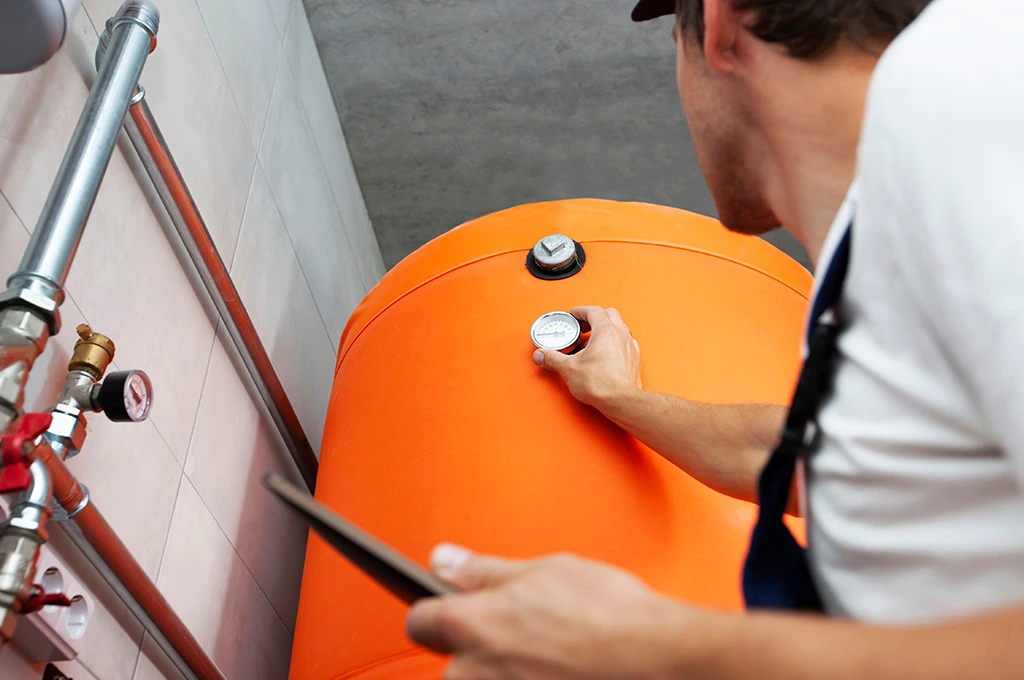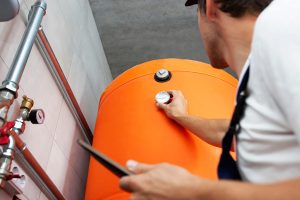Top 5 oil boiler problems and solutions
Oil boilers are one of the most popular heating systems used in homes. Thanks to advancements in technology, oil boilers are more reliable than ever before, giving users good value for money. However, just like any device that’s used regularly, even well-maintained oil boilers can face issues occasionally.
In this article, we share some of the most common oil boiler problems and solutions to fix them. Some of these issues are simple and you can resolve them on your own, while others might be a little more complicated, and you may need help from an OFTEC registered engineer.
1. Oil boiler not starting
If your oil boiler is not starting, the first thing you should do is check the level of heating oil in your tank. Too often, people run out of heating oil without realising it, especially during winter months when the boiler is used extensively.
What to do if your oil boiler is not starting:
If your oil tank is empty or only a small amount of oil is left at the bottom, then insufficient oil is likely to be the cause of your oil boiler not starting. Therefore, you’ll need to order heating oil from your regular oil supplier and ask them to refill your tank as soon as possible.
Leaving your tank empty for a long period can result in a range of issues with your boiler. If your main oil supplier is unavailable, you can purchase oil from another company that offers top-up services. At heating oil.co.uk we supply Standard Kerosene and Premium Kerosene to homes across England and Wales. Kerosene is an efficient, low risk and competitively priced fuel source.
On the other hand, if your tank still has sufficient oil, but the fault code on the display panel indicates an oil supply issue, then there might be debris at the bottom of the tank. If this is the case, you will need your oil tank to be cleaned once the current oil supply runs out.
Take a look at our guide to ordering heating oil.
2. Oil boiler not firing up for heating
If your oil boiler is starting but not firing up for heating, the nozzle could be causing the issue. The nozzle contains a small gap, which means dirt or deposits can easily get blocked. A blocked nozzle makes your boiler run slower than it should and can prevent your central heating system from working.
How to ensure your oil boiler is firing up for heating:
Your oil boiler nozzle should typically be changed once a year in your annual boiler service, carried out by an OFTEC registered engineer. Servicing your boiler will give you an idea of the condition of your boiler and prevent any small problems from becoming bigger ones.
It’s also important that you protect your boiler from residue in the tank, by ensuring your tank is always topped up with sufficient heating oil. You should also make it a practice to frequently test for water in your tank, particularly if your tank is old.
Need a professional to help you stay on top of your oil boiler maintenance? Find out more about our annual service for boilers.
3. Oil boiler keeps turning off on its own
A boiler turning off on its own can be frustrating and cause a lot of discomfort. This problem can be tricky to solve, not least because there are so many possible causes. While finding the solution to the problem can sometimes be straightforward, other times it will take a bit of work to identify the exact issue. Here are some of the issues which will likely explain why your boiler keeps turning off:
- It’s preheating water
- The temperature control valve (TCV) is no longer being regulated
- The boiler is short cycling
- The water pressure is too low or too high
- The thermostat isn’t measuring external temperatures correctly
- The heat exchanger is faulty or broken
- The water pump is faulty
- There are Interruptions to your boilers fuel supply
- The condensate pipe is frozen
As you can see, there are many possible explanations as to why your boiler keeps turning off on its own. However, with our shortlist of likely causes, you’ll hopefully be able to narrow it down to one specific issue or another. Of course, in some cases, it’s possible that multiple issues are at hand.
If in doubt, get in touch and we’ll arrange for your local OFTEC registered engineer to inspect your central heating system and fix the issue.
4. Oil boiler is producing smoke or soot
If you spot smoke or soot emanating from your oil boiler, a blocked flue pipe or cracked heat exchanger could be the cause.
What to do if your oil boiler is emitting smoke or soot:
As soon as you notice your boiler producing smoke or soot, the first thing you should do is inspect the outlet flue pipe. You should pay particular attention to the part that connects with the chimney, and remove any dirt, fluff and debris, which might have blocked the exhaust.
It’s also worth checking the gaskets around the inspection door of your oil boiler. In some cases, gaskets might be twisted or cracked and this could be causing the soot and smoke to escape from the furnace. If this is the issue, arrange to have your faulty gaskets replaced.
Can’t find the reason behind the smoke or soot? Get in touch with a trusted OFTEC registered engineer to identify the problem.
5. Boiler isn’t producing enough heat
If your oil boiler is running properly and the thermostats are set up correctly, but it’s not producing enough heat, it may be due to a dirty air filter. It’s not uncommon for lint to gather on air filters which can cause air filters to become blocked if it accumulates. There’s also a possibility that your fan belt is broken and not working as it should. If the filter and fan belt appear to be in good condition, check that the supply air fan is working properly.
What to do if your boiler isn’t producing enough heat:
There’s a possibility that the reason your central heating system isn’t working is something you can fix yourself. You may be able to get your central heating firing up again with the following tips:
- Check if your thermostat is turned off or set too low. Turn the thermostat up to its highest setting and see if this resolves the problem.
- If one of your radiators is still warm, or if the bottom of the radiators are warm, you may have to bleed your radiators.
- Make sure the water pressure is at one bar. If the boiler doesn’t have enough pressure, it will be unable to operate at all.
- Check if the condensate pipe is frozen. If so, defrost the frozen pipes to safely thaw the condensate pipe and get the boiler working again.
- Turn off the power supply to the boiler, wait 60 seconds, and then switch it back on again.
Consult your oil boiler handbook before attempting to carry out any maintenance on your own. Always follow the instructions carefully and check if there are any other tasks you can complete before contacting an OFTEC registered engineer. The majority of oil boiler issues can be fully avoided with a yearly boiler service.





